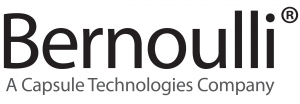Cardinal Health Launches Connectivity Partner Program
SAN DIEGO, Feb. 13, 2006 – Cardinal Health, Inc. (NYSE: CAH), the leading provider of products and services supporting the healthcare industry, today announced the Cardinal Health Connectivity Partner Program. The goal of this program is to enable hospitals to improve the flow of data by interfacing Cardinal Health solutions with third party technologies. Cardinal Health has reached agreements with several companies including, CardioPulmonary, CliniComp, Emergin, Misys Healthcare Systems and Philips Medical Systems, for the Alaris® Gateway Partner Certification Program. This is the first certification available under the Cardinal Health Connectivity Partner Program. The company is actively seeking additional partnerships to leverage the capabilities of the Alaris® Gateway.
The Alaris® Gateway provides interface capabilities to hospital information systems, helping to improve medication safety by facilitating the timely exchange of IV medication infusion and patient monitoring data. The Alaris® System* connects wirelessly with a central Alaris® Server, which then transmits the infusion data through the Alaris® Gateway to the hospital information system, creating the first true IT-centric infusion information system.
This infusion information system leverages the unique capabilities of the Alaris® System, the first and only system to offer an integrated modular platform that includes infusion therapy and patient monitoring. The Alaris® System captures a wealth of IV infusion and patient monitoring data that can help hospitals reduce harm caused by adverse drug events (ADEs). Sixty-one percent of the most serious and life-threatening ADEs are IV drug related.1
Leading hospitals have also been very responsive to the workflow benefits the Alaris® Gateway can offer. Cox Health Systems, a 1033-bed healthcare system located in Springfield, Mo. selected the Alaris® Gateway because it saw the value of Alaris® System data interfacing with its Emergin and Cerner systems.
“The Alaris® Gateway extends the utility of the Alaris® System by routing alerts to pocket paging and wireless telephone systems, allowing clinicians to better meet patient demands and significantly improve patient response times,” said Jack Cole, information technical director, Cox Health Systems.“We will also have the ability to automate the entry of medication administration records into our enterprise HIS system, which will help us enhance clinician efficiencies and focus on patient care.“
“This opens the way to any number of safety and workflow improvements,” said Jake St. Philip, president of the Alaris® Products business of Cardinal Health. “A hospital could, for example, relay infusion-related alerts from the point of care to people anywhere in the hospital, ensuring the appropriate personnel are notified immediately. Medication dose parameters can be uploaded to pharmacy and medical record systems automatically, eliminating inefficient and error-prone manual entries.”
*Alaris® System formerly known as the Medley® System.
About Cardinal Health
Headquartered in Dublin, Ohio, Cardinal Health, Inc. (NYSE: CAH) is a $75 billion, global company serving the healthcare industry with a broad portfolio of products and services. It manufactures and distributes pharmaceuticals and medical supplies, offers a range of clinical services and develops automation products that improve the management and delivery of supplies and medication for hospitals, physician offices and pharmacies. Through this diverse offering, Cardinal Health delivers integrated healthcare solutions that help customers reduce their costs, improve efficiency and deliver better care to patients. Ranked No. 16 on the Fortune 500, Cardinal Health employs more than 55,000 people on six continents. More information about the company may be found at www.cardinalhealth.com.
Except for historical information, all other information in this news release consists of forward-looking statements within the meaning of the Private Securities Litigation Reform Act of 1995. These forward-looking statements are subject to risks and uncertainties that could cause actual results to differ materially from those projected, anticipated or implied. The most significant of these uncertainties are described in Cardinal Health’s Form 10-K, Form 8-K and Form 10-Q reports (including all amendments to those reports) and exhibits to those reports, and include (but are not limited to) the following: the costs, difficulties, and uncertainties related to the implementation of organizational changes and the integration of acquired businesses; the loss of one or more key customer or supplier relationships or changes to the terms of those relationships; changes in the distribution patterns or reimbursement rates for health-care products and/or services; the results, consequences, effects or timing of any inquiry or investigation by or settlement discussions with any regulatory authority or any legal and administrative proceedings; the impact of previously announced restatements; difficulties or delays or increased costs in implementing its global restructuring program, including facility rationalizations; difficulties in opening new facilities or fully utilizing existing capacity; difficulties and uncertainties associated with business model transitions; with respect to future dividends, the decision by the board of directors to declare such dividends, which is expected to consider Cardinal Health’s surplus, earnings, cash flows, financial condition and prospects at the time any such action is considered; with respect to future share repurchases, the approval of the board of directors, which is expected to consider Cardinal Health’s then-current stock price, earnings, cash flows, financial condition and prospects as well as alternatives available to Cardinal Health at the time any such action is considered; and general economic and market conditions. Cardinal Health undertakes no obligation to update or revise any forward-looking statement.

